Australian Basketball's Issue with Diversity
How the South Sudanese community feels like they've been 'boxed out' by the game's governing bodies.
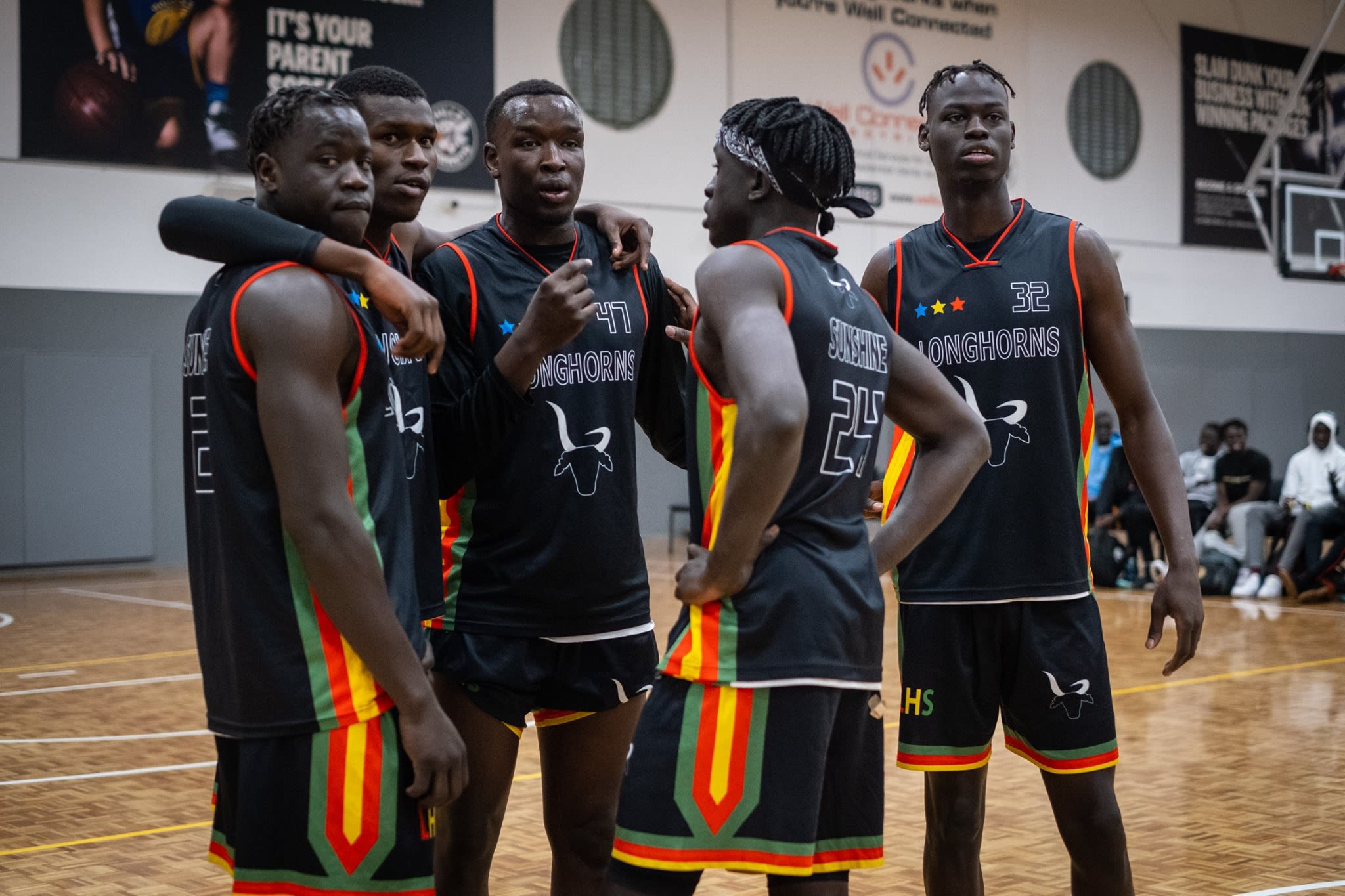
Everyone agrees that the best players should always get the most opportunities in any sport, but unfortunately for the South Sudanese community, that hasn’t been the case in Australian and Victorian basketball.
Kuany Kuany, a South Sudanese Australian professional basketballer admits that “he’s one of the lucky ones”, because he didn’t face the challenges many of his lesser known friends have.
These challenges aren’t the inability to make three-point shots or the incompetence to read a defence, they’re socio-economic.
Sport, especially basketball, is a very important part of the young South Sudanese community and in recent years it seems the governing bodies of the sport have been disinterested in helping these youngsters on their sporting journey.
Representative Squads
In Australia, there’s ultimately one way to get recognised in the basketball scene - representative squads.
Representative tournaments and carnivals allow young players to showcase their skills to professional scouts from all over the country or even the world.
‘Rep’ teams should always be made up of the best the area has to offer, but there are many other factors at play.
You can only play in these rep teams if you can afford to pay registration fees, pay for uniforms and find a way to travel to all the games.
According to Kuany, the first thing selectors ask you at rep tryouts is, “are you going to be able to pay the fees and are you going to be able to have someone to drop you to games on a Friday night?”
Anyone who answered 'no' was shown the door.
There was no willingness from officials to offer a way around these barriers for aspiring young athletes.
Those who could afford it got to play and the ones who couldn’t never progressed in their careers.
Many young South Sudanese basketballers didn’t want to burden their parents with more costs as many were already stretched financially.
And, because they were stretched financially, they would often be working on weekends so they couldn’t take their kids to games.
A lot of the blame for these money-centric attitudes lies with Basketball Victoria (BV) and Basketball Australia (BA), the governing bodies of basketball within the state and country.
They oversee all the associations and representative teams and their lack of action on this issue has frustrated many South Sudanese Australian basketballers, especially Kuany’s younger brother AK Kuany.
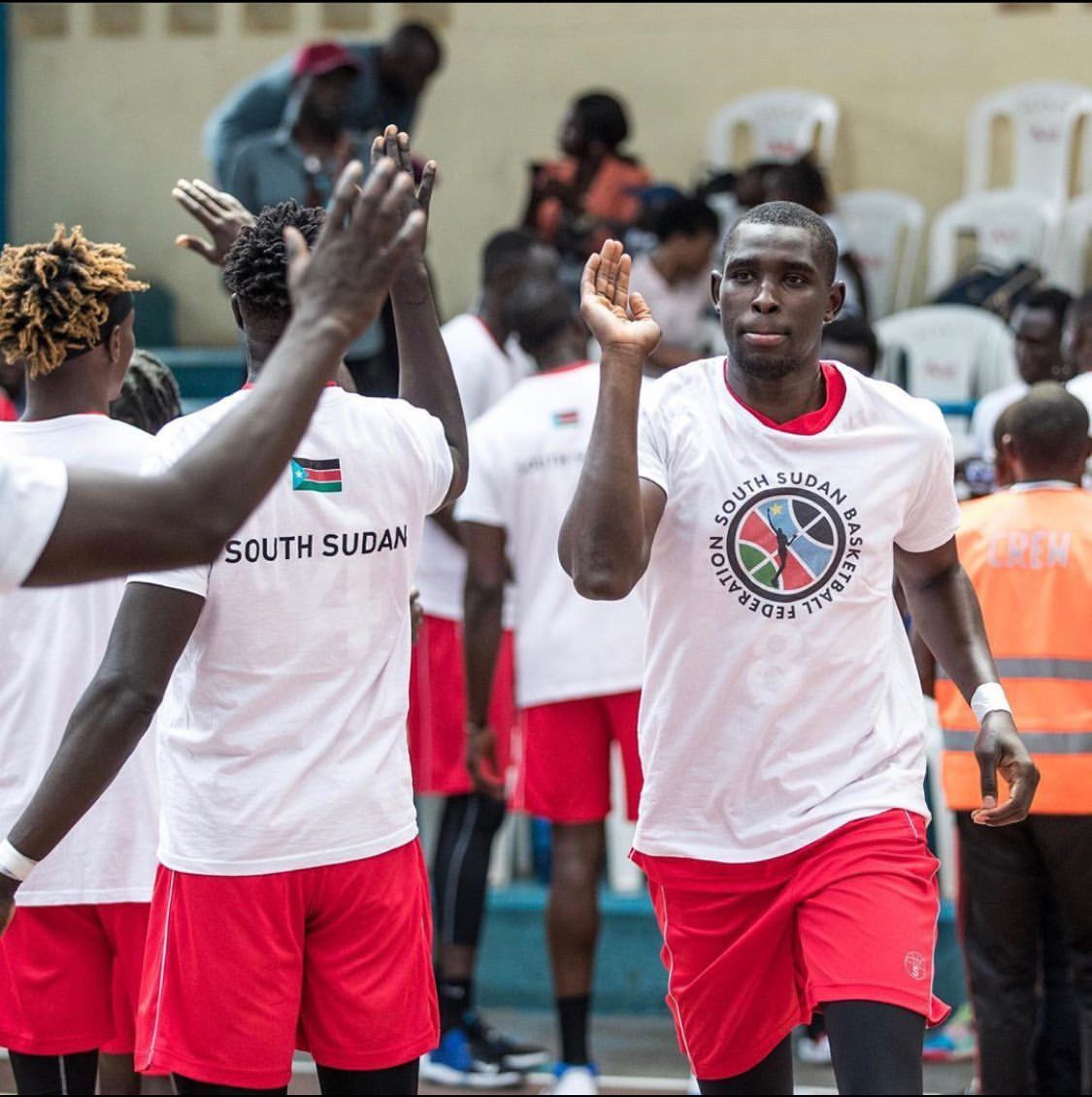
Kuany Kuany representing South Sudan at the Afro-Basket 2019 Tournament (Image courtesy of Kuany Kuany)
Kuany Kuany representing South Sudan at the Afro-Basket 2019 Tournament (Image courtesy of Kuany Kuany)
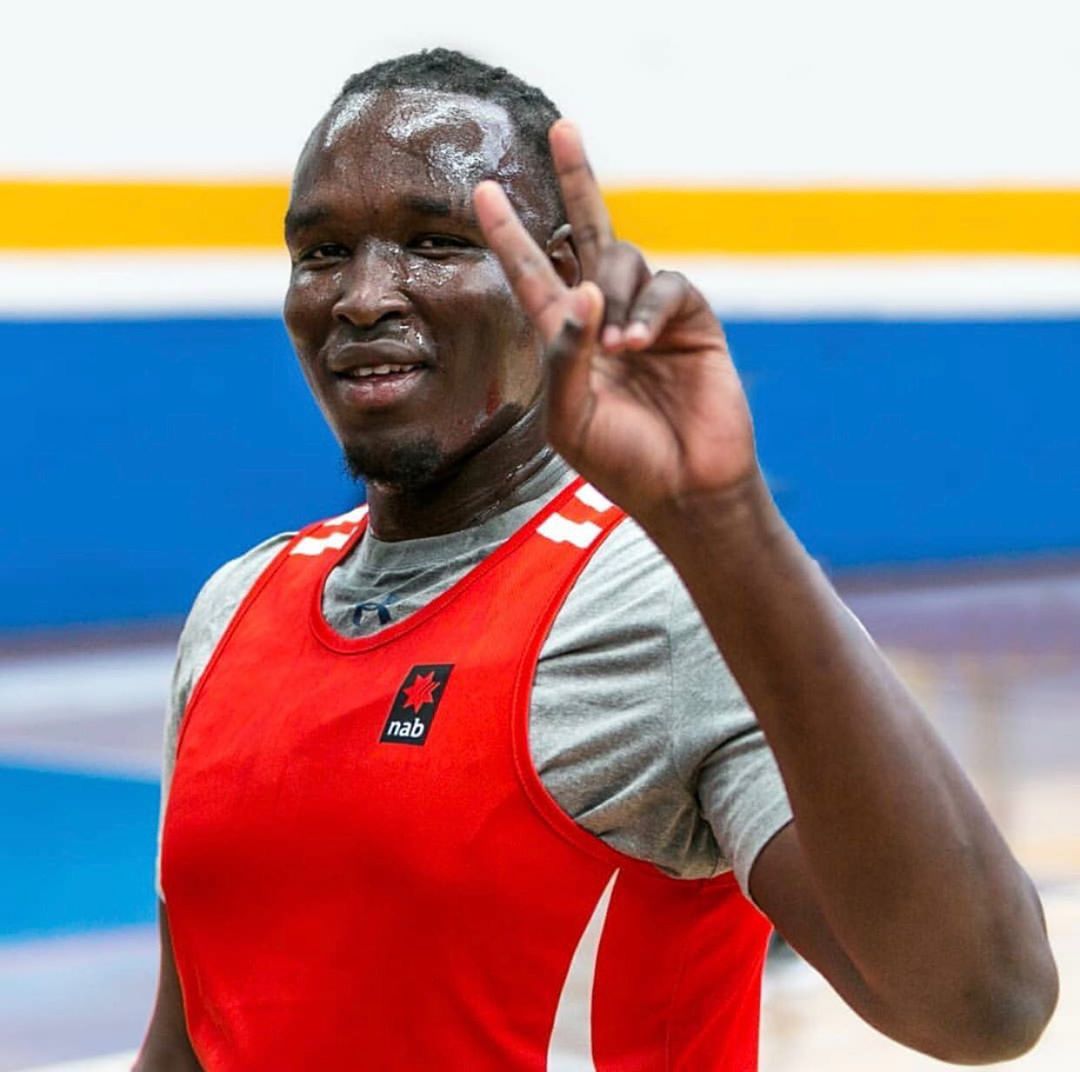
AK Kuany enjoying his time on the court (Image courtesy of AK Kuany)
AK Kuany enjoying his time on the court (Image courtesy of AK Kuany)
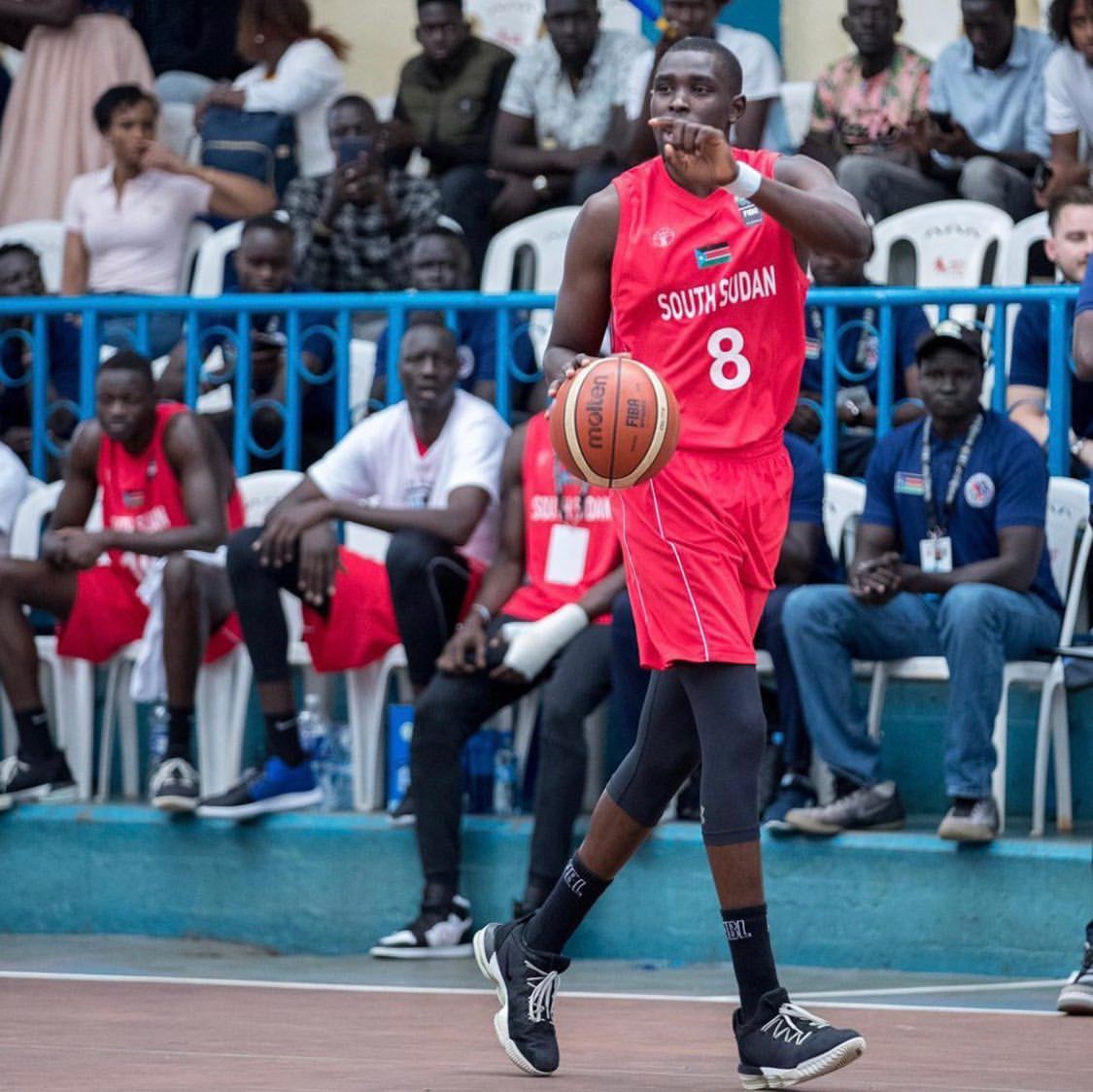
Kuany taking the ball up the court for South Sudan (Image courtesy of Kuany Kuany)
Kuany taking the ball up the court for South Sudan (Image courtesy of Kuany Kuany)
Lack of Australian Pathways
When Basketball Australia finally released a statement supporting the Black Lives Matter movement on June 18 this year, they said “we stand side by side with black communities”.
When AK Kuany saw this, he took to Twitter to respond and say: “YOU’VE NEVER STOOD WITH US.”
He blamed the organisations for outcasting his people and putting them on the sidelines.
AK went as far to say that BA and BV are the “obstacles” that the South Sudanese youth can’t overcome.
And as a Victorian I also say SHAME ON YOU @Basketball_Vic and @BasketballAus https://t.co/V9PVkIaLW3 pic.twitter.com/R05QeZsbor
— TakeOff 🚀 (@kuany47) June 21, 2020
In BA and BV’s perfect world, all junior players would rise through the ranks - within Australia, playing in higher and higher levels of representative teams along the way.
From there, they would get recognised by National Basketball League (NBL) teams or even colleges in the United States - the mecca of world basketball.
The platform the NBL or College provides could open up a world of opportunities to the point where they could be earning millions of dollars a year playing in the National Basketball Association (NBA).
But for BA and BV, this path is far from the one many of the country's young basketballers go down.
This is especially true for South Sudanese Australian basketballers because they feel like the system does not promote their growth like other players.
Kuany said “99 per cent if not 100 per cent of South Sudanese players feel that way” and that’s why almost all of them decide to take their talents to the United States and play high school basketball over there.
Being the best player at a tryout, then getting put on the fifth string team is just one example of the issues that frustrated AK as a junior.
“Not being able to get that spotlight and showcase your talent… that’s one of the major ways they really take the light away from South Sudanese talent.”
When speaking of peers who were unable to get the spotlight, AK cited NBL star, Deng Adel.
Adel was never selected to play in a state team or represent Australia but he was dominating the players that would eventually go on to represent their state and country.
AK believes Adel was looking at BA and BV as people who “aren’t helping me and aren’t looking to push my basketball forward to the point where I can provide for myself and my family”.
So he took the initiative to play high school basketball in the USA and from there he earned a scholarship at a division one college, the University of Louisville, and eventually made it to the NBA - the pinnacle for any basketballer.
AK said many of his African Australian counterparts have had similar experiences.
“They like our game, they like what we bring to the table, but they’re not willing to give us their support 110 per cent.”
“But they would for Johnny on the block.”
While South Sudanese stars are sitting at home because their families struggle financially, lesser talented kids take to the court and get the spotlight others deserve.
The 'Lucky Ones'
Kuany said he was “one of the lucky ones” - this was because his parents could afford to pay fees and had time to take him to games on weekends.
But even the so-called “lucky ones” aren’t immune from discrimination.
Kuany and AK both said they experienced some opposition teams who weren’t so welcoming while they were coming through the Australian basketball ranks.
“There were a lot of times where we experienced a lot of racism,” Kuany says.
NBL star Sunday Dech also experienced some racism along the way.
Sunday, who recently signed a three-year deal with the Adelaide 36ers, said there were some instances where racism did occur, but he never let it get to him.
“To the best of my knowledge it never really affected me as a person because I didn’t really understand it.”
He said basketball decreased the prominence of racism because they were “all there for one common goal, and that’s to play the sport you love”.
“It didn’t really give much room for that discrimination in a sense, whereas other people experience it on a day-to-day basis.”
“It goes back to people just not knowing.
“Everyone’s scared of something they don’t know and I think that’s what comes to play when it does come down to discrimination - from kids, from adults or from anyone really.”
Like many South-Sudanese youngsters Sunday’s journey to the highest level was far harder than many of his professional teammates.
It was the cultural differences at a grassroots level that made his journey to basketball stardom far harder than the average player.
“You go to a game and both parents are there cheering them on, whereas our parents - they were either busy with other things or working.”
“There’s little nuances with how you get to a game, you have to navigate through public transport and rides and other means, because obviously your parents couldn’t take you.”
Sunday also agrees representative squad selection includes many factors which don’t pertain to skill on the court.
He believes other players were selected because of their status in the club.
“A lot of it is due to it again, their parents know people, they get a foot in there.”
However he believes that no matter who you are and what skin colour you have, if you work hard enough you’ll make it.
One organisation that is encouraging disadvantaged youngsters to work hard is Helping Hoops. AK, Kuany and Sunday all believe the work it does finds South-Sudanese pathways into professional basketball.
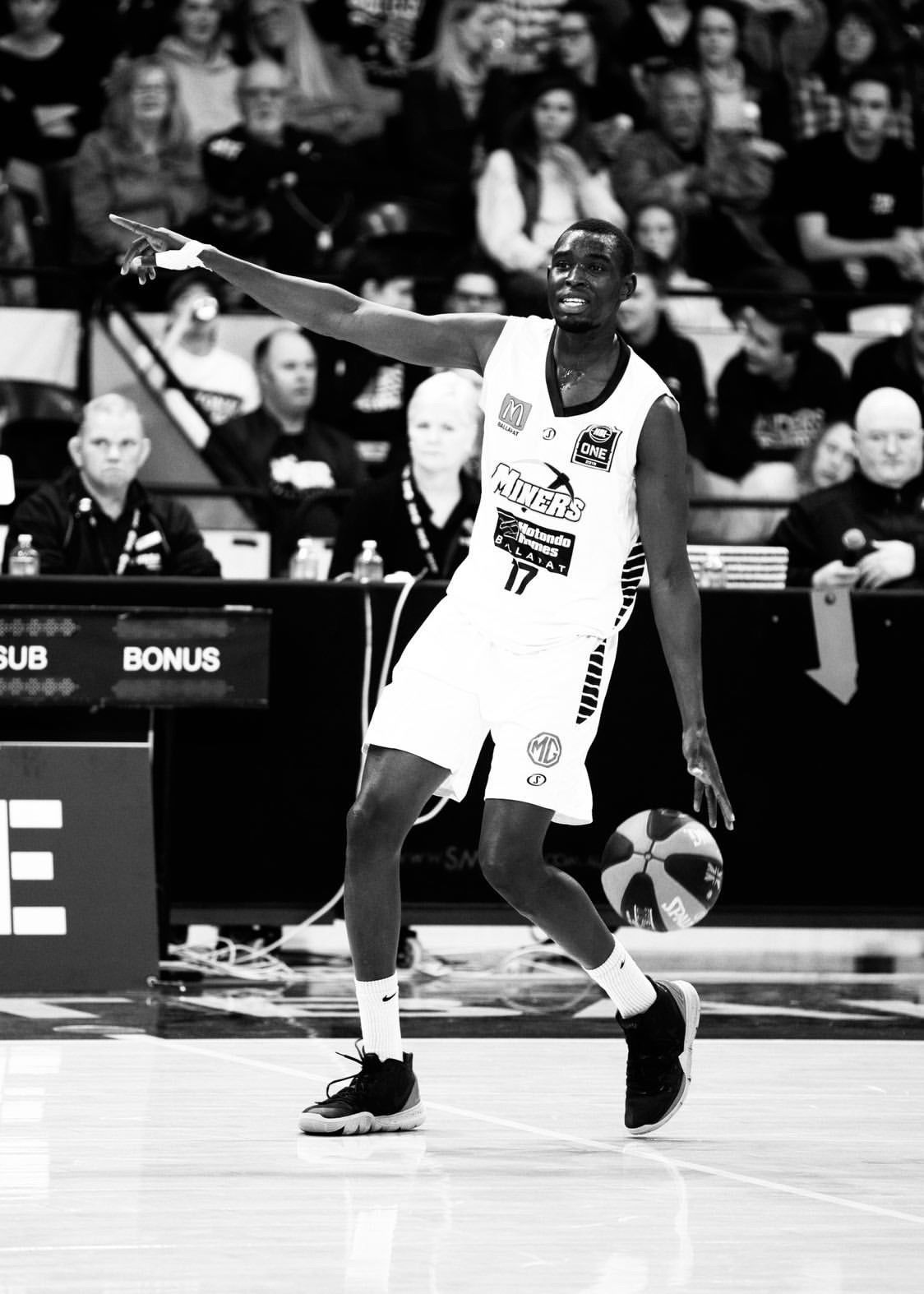
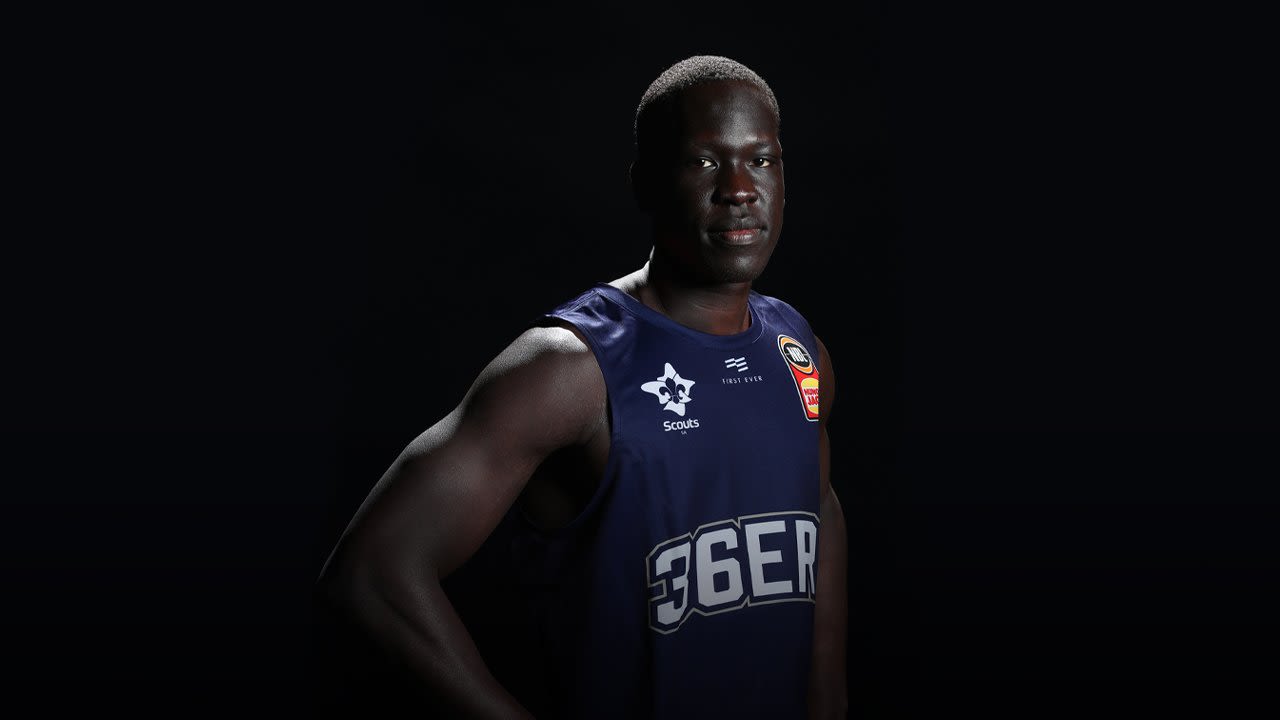
Helping Hoops
Helping Hoops is a children and young person’s charity that has a particular interest in helping marginalised communities get the same opportunities as others.
It believes that all people, no matter their skin colour, language or background, should be treated on an equal platform to everyone else.
Helping Hoops uses basketball as a vehicle to “inspire, empower and support” disadvantaged youths while also working towards equality and removing the barriers of entry to participate in sport.
Many of the children and young people Helping Hoops works with are from refugee or migrant backgrounds and they particularly focus on people that live in public housing estates in the inner city and beyond metro Melbourne.
The main way in which they engage with the community is by running two-hour basketball clinics.
The clinics run almost every week of the year, even in school holidays, because idle time usually does not lead to the best outcomes for a lot of the kids they work with.
Although the charity heavily incorporates basketball, their programs are open to all young people regardless of their skill level in any sport.
Helping Hoops is celebrating its 10th year this year, with operations manager Teuila Reid recognised as pivotal to the charity’s success.
She says she doesn’t look at Helping Hoops as a job because her “heart is really connected to what she does”.
Teuila has many responsibilities.
Along with overseeing the risk compliance, funding and marketing, she spends a lot of time connecting with the young participants and their families.
Teuila on Helping Hoops' key motivations
Teuila on Helping Hoops' key motivations
Although the charity has big aspirations it is a relatively small operation.
There are only a small number of paid staff and Teuila is in charge of 120-150 volunteers annually.
Teuila said the organisation is “super lucky to have an amazing cohort of volunteers that help with so many different things”.
Helping the South Sudanese Community
Like many of the South-Sudanese basketballers she has worked with over the last few years, Teuila is critical of some of BA and BV’s actions regarding disadvantaged communities.
Although she has a working relationship with both entities, she admits they could serve the communities they represent far better than they currently do.
She agreed that there is a strong sentiment in the community that the governing bodies don’t do a great job of empowering South Sudanese Australians.
“Both governing bodies need to have a close look at their human resource and recruitment strategies and ask themselves key questions about why the communities they serve are not represented in their teams.”
“If you want to engage those diverse communities, it’s really important to have members of the community involved in the corporations or governing bodies that exist to serve them.”
Teuila believes “it’s embarrassing” that there are no clearly identifiable pathways into basketball for South-Sudanese/Australians.
“I’m not talking about a free pass because I don’t believe that everything should come for free but I think we have to have something built in that at least considers that not everyone can afford to participate.”
“When you have members in a basketball team who maybe live in public housing, who maybe have this intergenerational trauma as a result of their own lives, that have so much going on that the average Australian kid doesn't have going on, there has to be something in place that can support those young athletes otherwise they just are not able to play the game.”
Kuany understands how losing the outlet of basketball can have significant negatives effects on members of his community.
“A lot of them now have just unfortunately gone down the wrong path, ended up with the wrong crowd and that not only affects them it affects their whole family as well.”
One would assume those in power would be trying to create the best lifestyle for the people they represent but that doesn’t seem to be the case for BA and BV.
Tokenistic Approaches
South-Sudanese/Australian basketballers have felt that BA/BV’s actions have been very tokenistic in recent years.
“We’re not racist, we’re inclusive.”
This is the company line Kuany Kuany, and countless others, have come to expect when just one South Sudanese basketballer is selected to a team.
Truth be told, these teams aren’t inclusive at all, it’s a five-word reinforcement said by clubs and state level selectors to make them feel better about themselves.
“Everyone just kind of knows," Kuany said. “They’re always going to have at least one black person, so they just make it seem like ‘we’re not racist’.”
This is the harsh, disturbing reality which the South Sudanese basketballers face when they attempt to progress through the ranks and, ultimately, drastic change does not appear to be on the horizon.
Teuila’s definition of tokenistic is “publicising a certain strategy within a diversity and inclusion framework, but then that not translating to what happens on the ground".
She believes a lot of organisations' websites include “good raps” on diversity and inclusion but that doesn’t necessarily mean that they’re ensuring all kids get a game of basketball.
“You have to dig a little deeper and not take everything at surface value.”
She said, “if we’re really wanting to know what’s going on within communities we have to make sure that we’re asking community members, we have to make sure that we’re getting feedback directly from the source.”
“Because if feedback primarily comes from executive, or that level of management, it’s not necessarily going to be accurate.”
If these governing bodies were to genuinely listen to all members of the community, especially the marginalised ones, it’s fair to assume that change for the better would occur.
One issue that would certainly be raised in conversation is the permanent cancellation of the South Sudanese Basketball Association tournament.
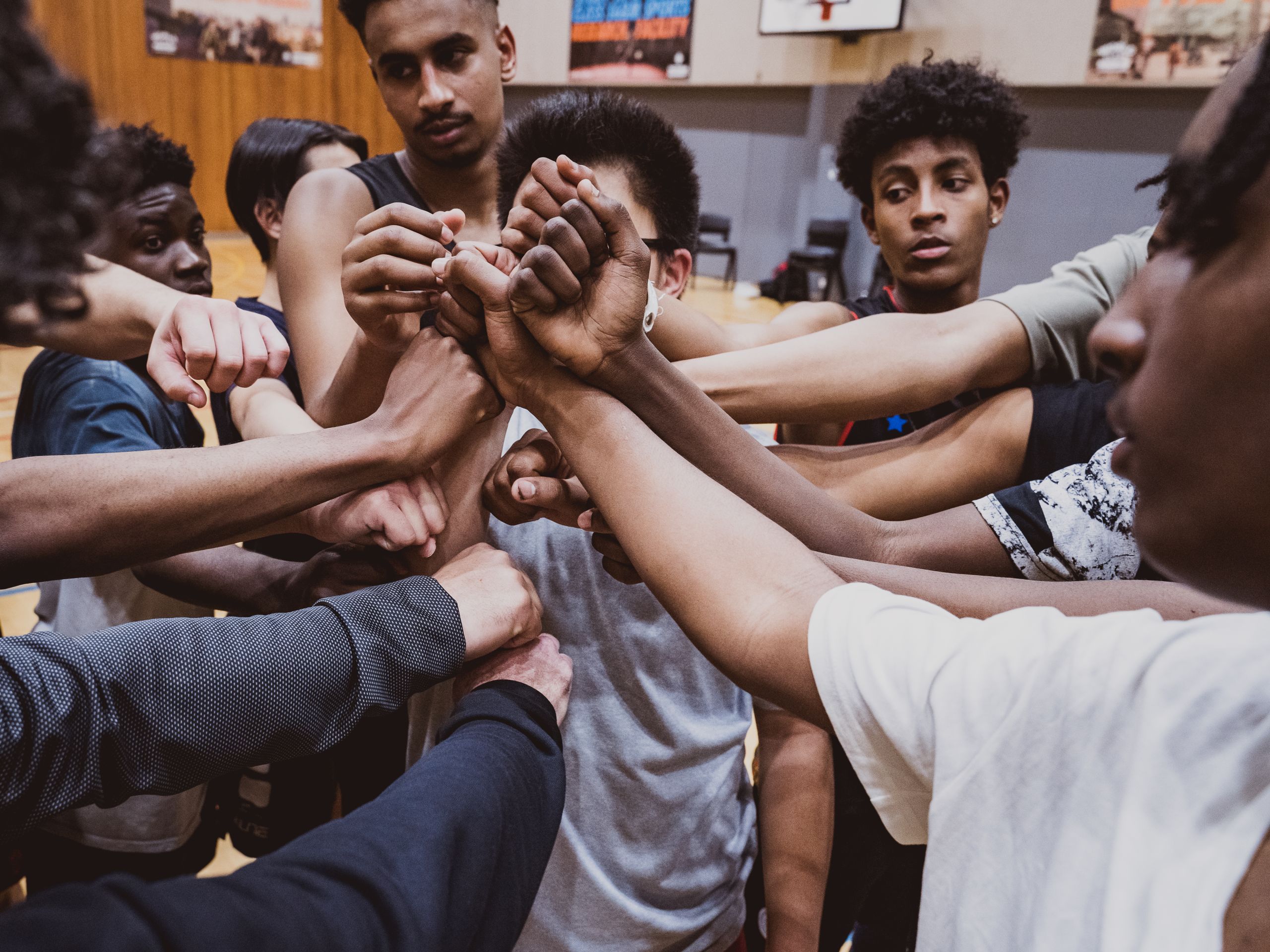
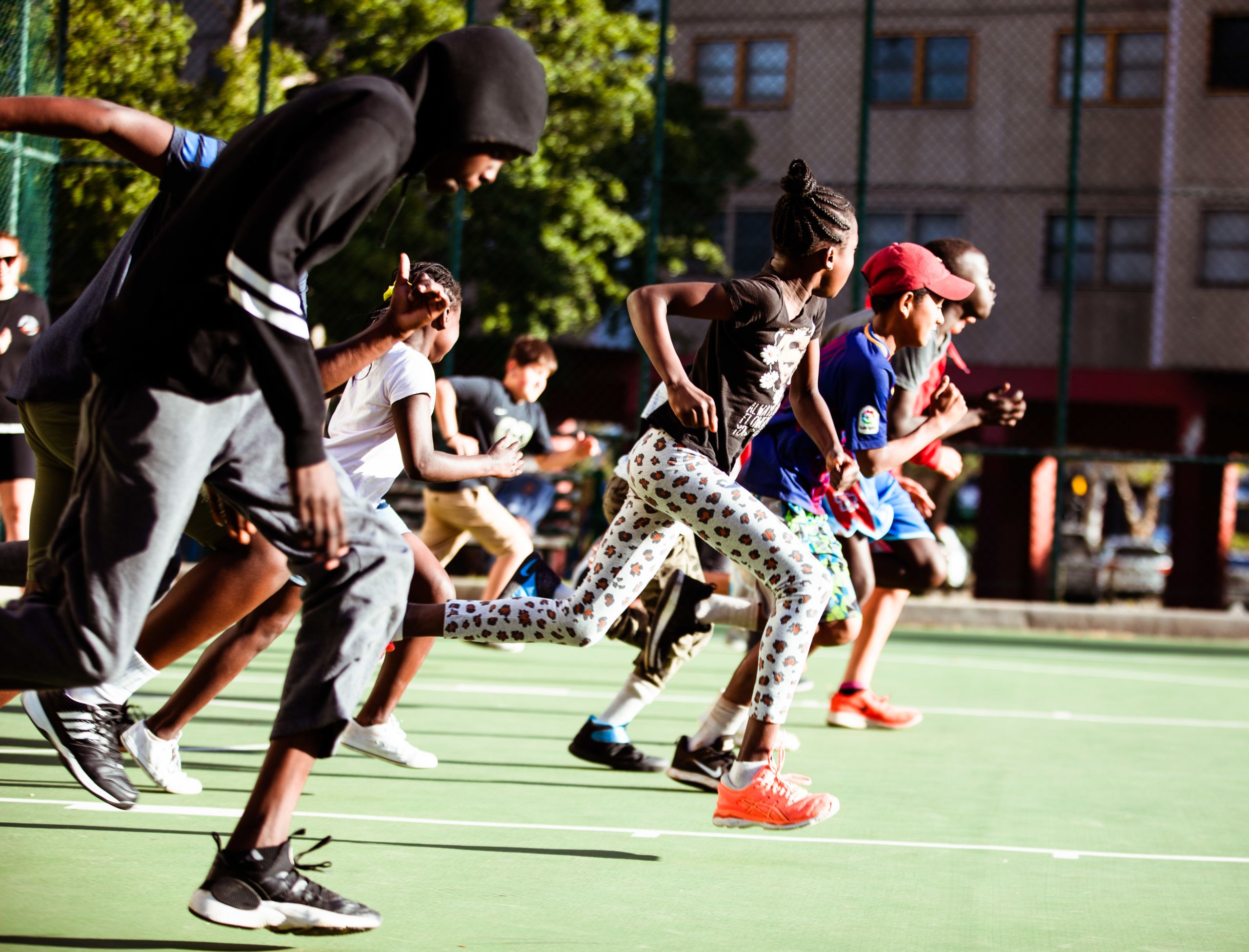
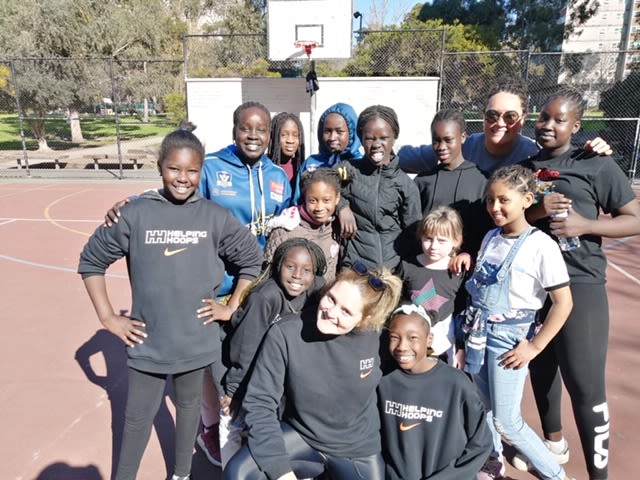
The SSANBA
The South Sudanese Australian National Basketball Association (SSANBA) tournament used to be played twice a year, however due to public and political pressure it was cancelled in 2018.
As a result of Melbourne media’s perpetuation of ‘African gangs’, Werribee residents opposed the mid-year tournament in 2018 and accompanied by Basketball Victoria’s rescinded endorsement of the tournament, it was cancelled.
AK laments how “Basketball Victoria and Basketball Australia really wanted to take that (SSANBA) off our hands".
"They wanted to make it theirs, but it was for us, it was for the community," AK said.
This was the biggest blow yet for the South Sudanese community, with support from state and national bodies now non-existent.
The SSANBA, a tournament for the community by the community, was the launching pad South Sudanese players needed to propel themselves and their careers further.
The tournament drew scouts and coaches across the world, and is the lifeblood of South Sudanese talent in not only Australia, but abroad.
The tournament hosted 120 teams of South Sudanese talent from all over the country and provided something for hundreds of teenagers to work towards.
Kuany said the cancellation of the tournament has been a major blow for the South Sudanese community.
When the decision was made to cancel the tournament, AK said it was heartbreaking to lose the “ultimate event in the community”.
AK also believes the tournament was bigger than basketball and its cancellation meant his friends "had nothing to do so they really took a bad road".
Basketball wasn’t the only thing that was in focus at the tournament, there were South Sudanese fashion shows, cultural dance competitions and food on offer.
A decision on the future of the tournament is yet to be made but those involved are still holding out hope that it may return in coming years.
Positive Changes
Despite the criticism of Australian basketball from many members of the South Sudanese community, AK, Kuany, Sunday and Teuila believe there are small steps being made in the right direction.
Although he remains very critical of BA & BV, AK says basketball in Australia is “coming up now” and people within the sport are “trying to adapt and change and provide something for every kid out there”.
AK said there’s still a “very long way to go” but one thing that's helping the battle, is his older brother’s relatively new venture - the Kuany Kuany Foundation.
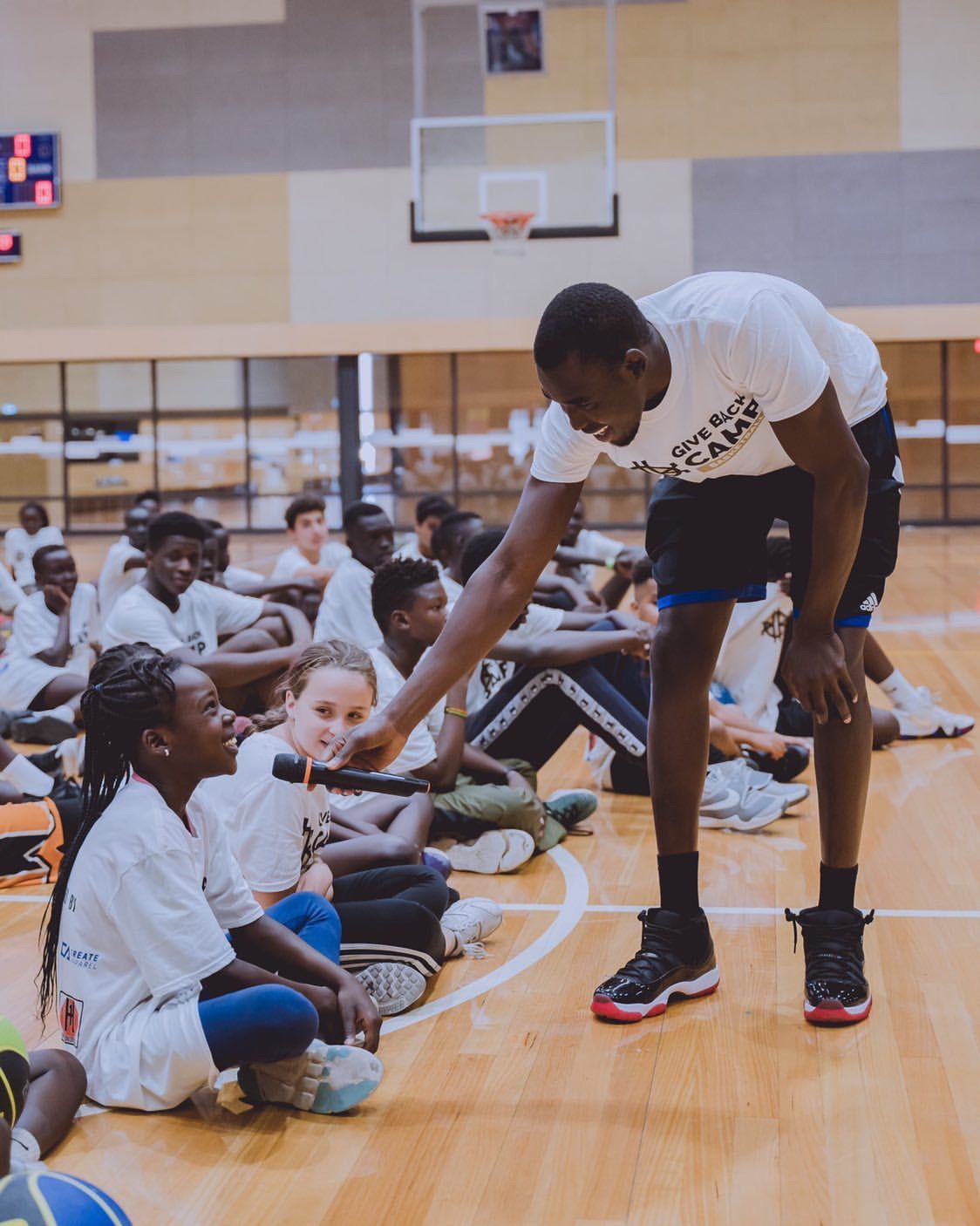
Kuany with young basketballers at the Kuany Kuany Foundation (image courtesy of Kuany Kuany Foundation)
Kuany with young basketballers at the Kuany Kuany Foundation (image courtesy of Kuany Kuany Foundation)
Much like Helping Hoops, the Kuany Kuany Foundation aims to inspire and empower youngsters through the sport of basketball.
Kuany’s foundation wants to provide elite opportunities in basketball to children despite their socioeconomic background or other factors that may have held them back in the past.
Kuany said that he has always wanted to find a way to give back to basketball and he doesn’t want to see kids go down the same path as some of his less fortunate friends with difficult life circumstances.
Kuany on the goals he has for his foundation
Kuany on the goals he has for his foundation
Kuany believes that things are certainly improving at a club level when it comes to helping South-Sudanese youngsters.
He said more clubs are now willing to help out their disadvantaged players in any way they can.
Kuany and Sunday both agree some local councils are also helping the situation by offering grants to young athletes who face difficult circumstances.
Kuany is also very appreciative of all the work the NBL was able to do for him while he was in the league and Teuila believes that the NBL is moving the right way.
Teuila said: “You don’t have to be a baller to see what the NBL has done in the past five years is just so different."
However much like other organisations within the sport Teuila also said they “have a long way to go making sure that they’re not so tokenistic but actually impactful”.
Sunday said things have improved a lot in previous years but “there’s always room to improve and there’s always room to tweak things and make things better”.
He said that some representative coaches and managers found a way to support him and other kids, financially but it’s often deemed “not fair” by other players and their parents.
“I guess the other kids and their parents don’t understand your background and how you’re dealing with that scenario.”
For Sunday, one of the ways things will get better is if the local clubs cooperate and liaise with Helping Hoops.
“Clubs and Helping Hoops should get together in a room and try and facilitate a way in allowing these kids who are talented in the Helping Hoops program, who do excel and are above the rest, and give them the opportunity to showcase what they do at the higher levels.”
“I think they will shock some people and make those teams.
“From there they can pick up speed and potentially make state teams and make NBL teams.”
If these things can happen, pathways into the top flight of basketball will be so much easier.
Increasing the overall support for the South Sudanese community is the mark that athletes like Sunday and Kuany want to leave after their playing days are over.
Their Legacy
Kuany’s foundation isn’t the only way he’s leaving a legacy.
He was selected to play for South-Sudan in the Afro-Basket tournament qualifiers last year.
The side included five other South Sudanese Australians and Kuany said it was amazing to represent his country for many reasons.
Kuany on the importance of representing South Sudan in international basketball.
Kuany on the importance of representing South Sudan in international basketball.
Sunday was able to show his fans that hard work does pay off, when he was able to play for the Australian Boomers earlier this year.
“It was an unreal experience, everyone dreams of playing at the international level and to be fortunate enough to do it this year was just a blessing and an honour.”
“Although it was only a couple of games, you get to experience the lifestyle and the pride of representing your country at the highest level and that’s something I’ll forever cherish.”
If the mindset of the governing bodies starts to shift, clubs continue to support their players and organisations like Helping Hoops and the Kuany Kuany Foundation continue to empower disadvantaged youngsters, positive change is certainly on the horizon.
There may be more kids like Sunday and Kuany who are able to play the sport they love, provide for their family and avoid going down the wrong path that so many have been pushed down.
Basketball Victoria and Basketball Australia both declined to comment for this story.
